Compare Electricity Plans
Compare latest electricity plans and prices.
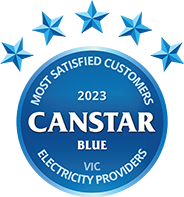
Tango Energy has claimed its second award for Most Satisfied Customers – Victoria Electricity Providers, beating our prior winners Powershop and Red Energy. Tango Energy locked in five stars for overall satisfaction in 2023, along with five stars for value for money, customer service and bill and cost clarity.
This year, over 2,100 electricity bill-payers in Melbourne and across VIC have had their say on their power companies of choice, which have been rated on factors including bill and cost clarity, online tools and advice, customer service and value for money. With so much competition between retailers, the idea is to give you as much information as possible about the 12 brands compared, as well as the others that operate in the state, to help you make the best decision for your needs. If you’ve always been with one of the ‘big three’ energy companies – AGL, Origin and EnergyAustralia – you may find these results particularly interesting given the research highlights a notable divide in satisfaction between customers of the big companies and some smaller providers. Keep in mind though that, while our ratings include 12 of the most prominent electricity retailers in VIC, you may find others operating in your area.
Canstar Blue surveyed 2,161 Victorian households for their feedback on their energy retailer. Respondents had to live in Victoria, have an electricity account and pay the bills for their response to be eligible.
Respondents rate their satisfaction with their electricity supplier from zero to ten, where zero is extremely dissatisfied and ten is extremely satisfied. Provider satisfaction was rated by respondents on the following criteria:
The winning brand is the one that receives the highest Overall satisfaction rating once all the scores from the Overall satisfaction criteria are combined and averaged.
Brands must have received at least 30 responses to be included, so not all brands available in the market have been compared in this survey. The brands rated in this survey are listed below in order of best overall satisfaction.
Best VIC electricity providers:
Tango Energy has topped the table for the first time since 2018, marking the second time the brand has been the retailer of choice for Victorian customers. Tango Energy was the only retailer in 2023 to receive five stars for overall satisfaction.
GloBird Energy took second place, achieving four stars for overall satisfaction, while last year’s winner Red Energy came in third, again with four stars. Lumo Energy also received four stars for satisfaction, while Engie, Momentum Energy, multi-time winner Powershop, AGL, Origin, EnergyAustralia, Dodo and Alinta Energy all claimed three stars.
Find more detailed information on our ratings methodology.
Here are some sponsored deals from the retailers on our database that include a link to the retailer’s website for further details. These are products from referral partners†. These costs are based on the Citipower network in Melbourne but prices may vary depending on your circumstances. This comparison assumes general energy usage of 4000kWh/year for a residential customer on a single rate tariff. Please use our comparison tool for a specific comparison in your area and to see other products in our database that may be available. Our database may not cover all deals in your area. As always, check all details of any plan directly with the retailer before making a purchase decision.
 |
|
10% Less than VDO |
$1,311 Price/year (estimated) |
Go to Site |
Here are some of the cheapest published deals from the retailers on our database that include a link to the retailer’s website for further details. These are products from referral partners†. Costs are based on the Citipower network in Melbourne but prices may vary depending on your circumstances. This comparison assumes general energy usage of 4000kWh/year for a residential customer on a single rate tariff. Please use our comparison tool for a specific comparison in your area and to see other products in our database that may be available. Our database may not cover all deals in your area. As always, check all details of any plan directly with the retailer before making a purchase decision.
Here are some of the cheapest published deals from the retailers on our database that include a link to the retailer’s website for further details. These are products from referral partners†. Costs are based on the Citipower network in Melbourne but prices may vary depending on your circumstances. This comparison assumes general energy usage of 4000kWh/year for a residential customer on a single rate tariff. Please use our comparison tool for a specific comparison in your area and to see other products in our database that may be available. Our database may not cover all deals in your area. As always, check all details of any plan directly with the retailer before making a purchase decision. The next three tabs feature products exclusively from AGL, EnergyAustralia and Origin.
Here are the AGL Energy plans on our database for Victoria. These are products from a referral partner†. These costs are based on the Citipower network in Melbourne but prices may vary depending on your circumstances. This comparison assumes general energy usage of 4000kWh/year for a residential customer on a single rate tariff. Please use our comparison tool for a specific comparison in your area and to see other products in our database that may be available. Our database may not cover all deals in your area. As always, check all details of any plan directly with the retailer before making a purchase decision.
Here are the EnergyAustralia plans on our database for Victoria. These are products from a referral partner†. These costs are based on the Citipower network in Melbourne but prices may vary depending on your circumstances. This comparison assumes general energy usage of 4000kWh/year for a residential customer on a single rate tariff. Please use our comparison tool for a specific comparison in your area and to see other products in our database that may be available. Our database may not cover all deals in your area. As always, check all details of any plan directly with the retailer before making a purchase decision.
Here are the Origin Energy plans on our database for Victoria. These are products from a referral partner†. These costs are based on the Citipower energy network in Melbourne but prices may vary depending on your circumstances. This comparison assumes general energy usage of 4000kWh/year for a residential customer on a single rate tariff. Please use our comparison tool for a specific comparison in your area and to see other products in our database that may be available. Our database may not cover all deals in your area. As always, check all details of any plan directly with the retailer before making a purchase decision.

Tango Energy has climbed the ranks to cinch first place in this year’s Victorian electricity provider ratings. The retailer took home five stars for overall satisfaction, value for money, customer service and bill cost and clarity, plus four stars for ease of sign-up.
Tango Energy is a Melbourne-based provider and the retail arm of renewable power generation company Pacific Hydro. Tango primarily operates in VIC, providing customers with a small selection of market offers. Tango offers plans with variable rates and does not include any conditional discounts, just competitive usage and supply rates, often in exchange for online communications and direct debit payments. Tango Energy is generally one of the cheaper-priced companies servicing the Victorian market, with a back-to-basics approach that has made it a hit with customers.
Here are the Tango Energy plans in our database for VIC. These are products from a referral partner†. These costs are based on the Citipower network in Melbourne but prices may vary depending on your circumstances. This comparison assumes general energy usage of 4000kWh/year for a residential customer on a single rate tariff. Please use our comparison tool for a specific comparison in your area and to see other products in our database that may be available. Our database may not cover all deals in your area. As always, check all details of any plan directly with the retailer before making a purchase decision.
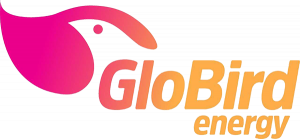
Coming in at second place in 2023 is GloBird Energy, which received four stars for overall satisfaction, value for money, customer service, bill and cost clarity and online tools and advice. GloBird was also given five stars for ease of sign-up.
GloBird Energy has emerged as one of the main ‘second tier’ challengers to Australia’s power giants, AGL, Origin and EnergyAustralia. While some retailers promote their green credentials, helpful tools, or great customer service, GloBird is all about promoting cheap prices and big savings, which it mainly does through low rates and conditional discounts. In addition to supplying electricity, the retailer now also offers natural gas in VIC, as well as the other eastern states.
Here are the GloBird Energy plans in our database for VIC. These are products from a referral partner†. These costs are based on the Citipower network in Melbourne but prices may vary depending on your circumstances. This comparison assumes general energy usage of 4000kWh/year for a residential customer on a single rate tariff. Please use our comparison tool for a specific comparison in your area and to see other products in our database that may be available. Our database may not cover all deals in your area. As always, check all details of any plan directly with the retailer before making a purchase decision.

Red Energy came in third place this year, earning four stars for overall satisfaction, bill and cost clarity, and online tools and advice. It earned two five-star results for customer service and ease of sign-up, but just three stars for value for money.
The highest-rated electricity provider in our NSW comparison for 10 years running, Red Energy has also become a staple in our Victorian electricity provider ratings. The retailer keeps things fairly simple with a small range of variable rate market offers at competitive prices. Red Energy’s biggest selling point however, is its partnership with Qantas, with one plan coming with the added benefit of bonus Qantas Frequent Flyer points upon sign up and for paying on time. All of Red Energy’s plans come with no contract terms or exit fees.
Here are the Red Energy plans in our database for VIC. These are products from a referral partner†. These costs are based on the Citipower network in Melbourne but prices may vary depending on your circumstances. This comparison assumes general energy usage of 4000kWh/year for a residential customer on a single rate tariff. Please use our comparison tool for a specific comparison in your area and to see other products in our database that may be available. Our database may not cover all deals in your area. As always, check all details of any plan directly with the retailer before making a purchase decision.

Lumo Energy was awarded four stars across most research categories this year, including for overall satisfaction, value for money, customer service, bill and cost clarity, online tools and advice, and ease of sign-up.
Lumo Energy offers Victorians a small range of market offers which currently feature variable rates (although fixed-rate deals are occasionally available). These plans come with monthly billing options, and no standard connection and disconnection fees for those moving homes. Lumo also offers a rewards program for customers, which gives members access to discounts from a wide range of retailers.
Here are the Lumo Energy plans in our database for VIC. These are products from a referral partner†. These costs are based on the Citipower network in Melbourne but prices may vary depending on your circumstances. This comparison assumes general energy usage of 4000kWh/year for a residential customer on a single rate tariff. Please use our comparison tool for a specific comparison in your area and to see other products in our database that may be available. Our database may not cover all deals in your area. As always, check all details of any plan directly with the retailer before making a purchase decision.

Engie received three stars for overall satisfaction in 2023, plus three stars for value for money and bill and cost clarity. However, customers gave Engie four stars for customer service, online tools and advice and for ease of sign-up.
Engie is typically a price-competitive brand, offering a range of unique products to choose from. Engie’s main selling point is its partnership with local motoring clubs, where it offers discounts to eligible members, as well as bonus 12-month memberships. It also offers a unique plan to Victorians that allows them to earn points towards movie tickets. All plans come with variable rates and no lock-in contracts.
Here are the Engie plans in our database for VIC. These are products from a referral partner†. These costs are based on the Citipower network in Melbourne but prices may vary depending on your circumstances. This comparison assumes general energy usage of 4000kWh/year for a residential customer on a single rate tariff. Please use our comparison tool for a specific comparison in your area and to see other products in our database that may be available. Our database may not cover all deals in your area. As always, check all details of any plan directly with the retailer before making a purchase decision.

Momentum Energy was rated three stars for overall satisfaction, value for money, bill and cost clarity, online tools and advice and ease of sign-up in this year’s ratings. It was also awarded four stars for customer service.
Owned by Hydro Tasmania, Momentum Energy was one of the first retailers to make moves to help simplify the retail market in Australia by keeping its products free from conditional discounts. The Melbourne-based retailer markets itself as the brand with great rates but no confusing discounts. Momentum Energy offers several residential market offers in VIC, with varying rates but no exit fees.
Here are the Momentum Energy plans in our database for VIC. These are products from a referral partner†. These costs are based on the Citipower network in Melbourne but prices may vary depending on your circumstances. This comparison assumes general energy usage of 4000kWh/year for a residential customer on a single rate tariff. Please use our comparison tool for a specific comparison in your area and to see other products in our database that may be available. Our database may not cover all deals in your area. As always, check all details of any plan directly with the retailer before making a purchase decision.

A six-time winner of our Victorian electricity provider ratings, Powershop earned three stars for overall satisfaction in 2023, and three stars for value for money, customer service and bill and cost clarity. It also received five stars for online tools and advice, plus four stars for ease of sign-up.
As well as offering competitive rates, Powershop focuses on offering customers the helpful tools they need to monitor and act on their power usage, including an online platform and Powershop smartphone app. Previously, Powershop allowed customers to pre-purchase energy, but now offers a simplified postpaid approach to billing. When it comes to its plans, Powershop offers reasonable rates, which includes 100% of usage carbon offset at no extra cost.
Here are the Powershop plans in our database for VIC. These are products from a referral partner†. These costs are based on the Citipower network in Melbourne but prices may vary depending on your circumstances. This comparison assumes general energy usage of 4000kWh/year for a residential customer on a single rate tariff. Please use our comparison tool for a specific comparison in your area and to see other products in our database that may be available. Our database may not cover all deals in your area. As always, check all details of any plan directly with the retailer before making a purchase decision.
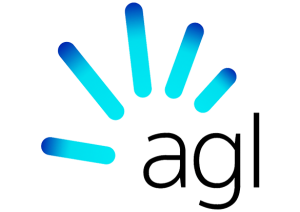
AGL took home three stars for overall satisfaction, value for money and bill and cost clarity in this year’s awards. It also received four stars for customer service, online tool and advice, and ease of sign-up.
Utilities giant AGL has undertaken a major review of its plans, moving away from conditional discounts and fixed rates and replacing these with reasonably low variable rates instead. It offers several plans in VIC, all of which come with access to AGL Rewards, the retailer’s loyalty program that delivers various value-add benefits. AGL is also one of few retailers to offer specific deals for seniors and solar customers.
Here are the AGL plans in our database for VIC. These are products from a referral partner†. These costs are based on the Citipower network in Melbourne but prices may vary depending on your circumstances. This comparison assumes general energy usage of 4000kWh/year for a residential customer on a single rate tariff. Please use our comparison tool for a specific comparison in your area and to see other products in our database that may be available. Our database may not cover all deals in your area. As always, check all details of any plan directly with the retailer before making a purchase decision.
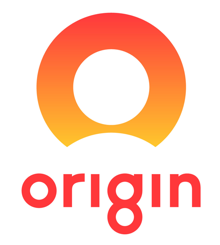
Origin was awarded three stars for overall satisfaction in 2023, and three stars for value for money and bill and cost clarity. However, it claimed four stars for customer service, online tools and advice and ease of sign-up.
One of Australia’s biggest energy retailers, Origin Energy offers Victorian customers several plans, all of which include variable rates. Specific market offers also include extras such as Allianz Emergency Home Assistance and bonus Everyday Rewards points. These plans come with no contract terms or exit fees. Origin also has some specific deals for customers with solar panels.
Here are the Origin Energy plans in our database for VIC. These are products from a referral partner†. These costs are based on the Citipower network in Melbourne but prices may vary depending on your circumstances. This comparison assumes general energy usage of 4000kWh/year for a residential customer on a single rate tariff. Please use our comparison tool for a specific comparison in your area and to see other products in our database that may be available. Our database may not cover all deals in your area. As always, check all details of any plan directly with the retailer before making a purchase decision.
![]()
EnergyAustralia scored three stars across multiple categories this year, including overall satisfaction, value for money and bill and cost clarity. It was awarded four stars for customer service, online tools and advice and ease of sign-up.
EnergyAustralia provides a fairly concise range of products in VIC. Rates vary between its plans, and the popular Flexi Plan includes a modest guaranteed discount applied to the whole bill. The company helpfully publishes estimated monthly costs for all its plans online so you’ll have an idea of what you’ll pay before signing up. Energy Australia also offers solar-specific products with a higher feed-in tariff.
Here are the EnergyAustralia plans in our database for VIC. These are products from a referral partner†. These costs are based on the Citipower network in Melbourne but prices may vary depending on your circumstances. This comparison assumes general energy usage of 4000kWh/year for a residential customer on a single rate tariff. Please use our comparison tool for a specific comparison in your area and to see other products in our database that may be available. Our database may not cover all deals in your area. As always, check all details of any plan directly with the retailer before making a purchase decision.
![]()
Dodo has scored three stars in almost all research categories this year, including overall satisfaction, value for money, customer service, bill and cost clarity and online tools and advice. However, it snagged four stars for ease of sign-up.
Perhaps best-known as a phone and internet provider, Dodo has made the move into selling power and natural gas. A fairly no-frills retailer, Dodo operates with a single variable rate market offer, usually competitively priced. This is a no-contract agreement with no exit fees. Dodo encourages its customers to sign up for multiple services, offering a monthly internet discount for bundling NBN and electricity and/or gas.
Here are the Dodo plans in our database for VIC. These are products from a referral partner†. These costs are based on the Citipower network in Melbourne but prices may vary depending on your circumstances. This comparison assumes general energy usage of 4000kWh/year for a residential customer on a single rate tariff. Please use our comparison tool for a specific comparison in your area and to see other products in our database that may be available. Our database may not cover all deals in your area. As always, check all details of any plan directly with the retailer before making a purchase decision.
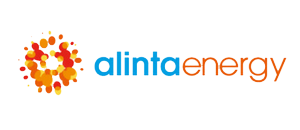
Rounding out our 2023 ratings is Alinta Energy, which took home three stars for overall satisfaction. It also received three stars for value for money, customer service,bill and cost clarity and online tools and advice, plus four stars for ease of sign-up.
Alinta Energy is one of the largest dual fuel providers in the southern states of Australia, as well as a major gas supplier in Western Australia. When it comes to VIC, Alinta offers competitive rates and no conditional discounts. The retailer also brings savings on various activities, such as movie tickets and eating out, to its customers through the Alinta Energy rewards program.
Here are the Alinta Energy plans in our database for VIC. These are products from a referral partner†. These costs are based on the Citipower network in Melbourne but prices may vary depending on your circumstances. This comparison assumes general energy usage of 4000kWh/year for a residential customer on a single rate tariff. Please use our comparison tool for a specific comparison in your area and to see other products in our database that may be available. Our database may not cover all deals in your area. As always, check all details of any plan directly with the retailer before making a purchase decision.
There is no simple answer to this question because it depends on a multitude of factors, from the type of contract you have, to your discount, electricity tariffs, and where you live. But to give you an idea of where to find the cheapest rates, Canstar Blue has a Victorian electricity cost comparison page, showing plans from the providers mentioned in this report. Being the cheapest provider doesn’t automatically make them the ‘best’, but if it’s purely the bottom line you are concerned about, be sure to check out the details. Also be sure to use our comparison tool for specific offers in your area.
To make sure that you get a better deal, be sure to consider and ask the following questions:
You will find the answers to these questions and more in the energy price fact sheets of each provider you compare. However, these documents can be quite difficult to understand, so don’t be afraid to pick up the phone and get the answers you need. It’s also a good idea to contact your existing provider and ask if your current deal is the best they can offer. And remember that the retailers should be working hard to keep you happy, so if you’re not completely satisfied with the price you’re paying or the service you’re receiving, you now know what you can do about it.
GloBird Energy, OVO Energy, CovaU and 1st Energy are consistently some of the cheapest electricity companies in VIC. Nevertheless, it’s best to frequently compare retailers as electricity prices change all the time given there are more than 20 brands to choose from.
Aside from which supplier is cheapest, it’s also important to look into what value a plan can give you through other features like customer service, billing options and rewards programs. Although cheaper prices will generally sway most Victorians when making a purchase decision, don’t discount the energy providers that will go the extra mile for your business.
It should only take two business days to switch energy providers in VIC, meaning the old retailer must transfer you to your new retailer within this time period.
It’s important to know that the retailer you’re looking to switch to will usually update you once your account has been successfully transferred. Also, you can expect a final bill from your old retailer which will still need to be settled.

Kelseigh Wrigley covered Australia’s retail energy market, growing her industry specific expertise over the last two years. She holds a Bachelor of Journalism from the Queensland University of Technology and has contributed her skills to online publications Hunter and Bligh and local radio station 4ZZZ.
Meet the Editorial Team
Samantha Mauro-Todd is Canstar Blue’s Consumer Research Specialist, coordinating the consumer research program behind our customer satisfaction awards across Canstar and Canstar Blue in Australia and New Zealand. Sam has earned a Bachelor of Business (Marketing) from Griffith University and, with seven years in market research and two years in marketing, she is experienced in survey design, implementation and analysis, coupled with an understanding of marketing principles and best practice.
Meet the Research TeamThe list below features all the electricity providers that currently list plans in VIC.
There are five electricity distribution networks in VIC, with numerous energy providers operating throughout. Canstar Blue’s electricity comparison tool includes pricing from all of these providers. Please note, other providers may be available in your area.
One factor that could impact the size of your next bill is where you live. VIC has five different electricity distribution networks and the cost of supplying power to your home can be different depending on which network you live on. While electricity retailers are the customer-facing business, it’s the distributors who manage the infrastructure (i.e. poles and wires) that transports energy to your living room. The five electricity distributors in VIC are:
As the retailers pass on distributor costs to their customers, the suburb you live in will impact your energy costs. For example, an Origin customer living in north Melbourne would pay a different rate to an Origin customer in south Melbourne, even if they have the same product and identical usage habits. Distributor costs can account for up to 50% of your overall bill. If you are a homeowner, there is nothing you can do about this, but if you are renting a home or considering where to buy, this is worth looking into. Choosing one suburb over another could save you hundreds of dollars a year in energy costs.
Given that distribution costs are passed on to the electricity providers, who then pass the costs onto their customers, it makes sense that households in the most hard-to-reach places will pay the most for power as there are more poles and wires involved in transmitting the energy to them. This is the case in VIC where electricity customers in central parts of Melbourne (on the Citipower network) generally pay lower rates than those who live on the Powercor and AusNet networks which cover huge parts of regional VIC.
As you can see, living in one part of VIC could see you paying hundreds of dollars a year more than an equivalent household in another part of the state, even with the same retailer. And keep in mind that it’s not only those out in regional VIC that pay the highest prices – as a provider’s rates are consistent across each network, you could live on the Powercor or AusNet network in an outer suburb of Melbourne and pay significantly more than your friends in a neighbouring suburb.
The sun may not shine in VIC as often as some other states, but more and more Victorian households are choosing to invest in solar systems. While all electricity market offers come with some form of solar feed-in tariff, there are only a handful of retailers that offer specific solar plans, usually with higher rates for solar generation. These include AGL, Origin, EnergyAustralia and 1st Energy.
Engie offers plans with NRMA and movie ticket inclusions , while Red Energy customers can collect Qantas Frequent Flyer points. It’s also common for retailers to throw an occasional $50-$100 in sign-up credit at new customers, especially if they sign up online.
The following electricity providers offer some form of rewards program to customers in VIC, bringing savings on various leisure and social activities, including eating out, accommodation and even theme park tickets.
VIC is a hugely competitive market for the electricity providers – it’s where many invest the majority of their time, effort and money in order to attract new customers. This is important to know because it means that you have the power to find a better deal – provided that you’re willing to do your research and shop around. This hasn’t happened by chance or overnight. VIC was the first Australian state to completely remove electricity price regulations in 2009, which means the energy companies are free to set their own plans and prices, with minimal legislative interference under the introduction of the VDO in 2019. Households had been able to switch providers several years earlier, but there was little financial incentive to do so at the time.
With a fully deregulated electricity market, Victorians now have a huge range of different providers, plans and other incentives to choose from. However, with all this choice can come confusion and there is little doubt that the prospect of picking an electricity provider is a daunting one for a great many households, which is why many will still be paying more for power than they need to.
The Victorian energy market went through a significant change in July 2019 when tough new regulations took effect, designed to cut prices, as well as make comparing plans easier. After years of big, often dodgy discounts, retailers must now compare their discounted products to a ‘level playing field’ price called the Victorian Default Offer (VDO). The idea is that, unlike before, there is now a consistent price from which plans are compared, meaning you can have greater confidence that the plans boasting the biggest savings genuinely deliver them. At the same time, the Victorian Default Offer (VDO) acts as a price cap for customers who were previously paying the highest prices on standing offers. These customers have now been switched onto the cheaper VDO price and will be saving hundreds of dollars a year. That said, there are still many plans cheaper than the VDO, so shopping around for the best deal is still hugely important.
VIC currently has three coal-fired power stations in operation in the Latrobe Valley, Yallourn (owned by EnergyAustralia) and Loy Yang A and B (owned by AGL). The Loy Yang power stations alone are said to power approximately 30% of VIC’s electricity generation, although all three plants are scheduled to close in the next 10-15 years.
VIC is also home to more than a dozen solar farms, wind farms and hydroelectric power generation systems, though these can currently only meet a small percentage of the state’s overall energy demands.
Here are the previous winners of Canstar Blue’s Electricity Providers – VIC Customer Satisfaction Award:
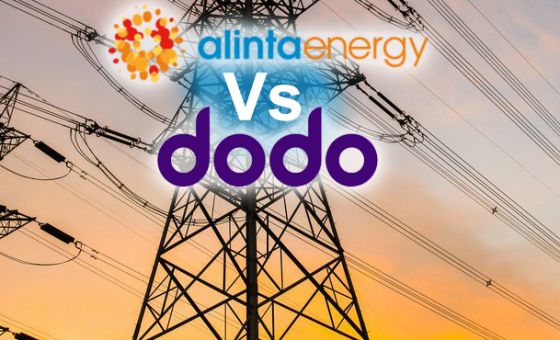
Best-Rated Electricity Providers NSW - October 21st
Dodo has currently switched off market offer plans to new customers in SA. We will do our best to keep the details on this page up to date as new information becomes available. Please treat …
– Read more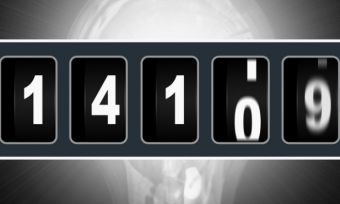
Best-Rated Electricity Providers for Business - October 17th
Canstar Blue has calculated and compared the average kWh price of electricity in NSW, QLD, VIC and SA. See how your state compares.
– Read more
Best-Rated Electricity Providers NSW - October 9th
Canstar Blue reviews energy offers from retailers including AGL, EnergyAustralia, Simply Energy, Powershop, Click Energy & Red Energy.
– Read more
Best-Rated Electricity Providers VIC - October 9th
Who has the cheapest electricity prices in Victoria? Canstar Blue has compared plans, discounts and costs from the big providers to help you find a better deal.
– Read more
Best-Rated Electricity Providers for Business - September 3rd
Confused when comparing electricity deals? Canstar Blue walks you through energy price fact sheets and how to make sense of them.
– Read morePicture: Shutterstock.com
*NSW, QLD and SA: Price is GST inclusive and is: The estimated lowest possible price a representative customer would be charged in a year for this plan, assuming all conditions of discounts offered (if any) have been met, based on the AER’s model annual usage in the distribution region as stated at the top of each table.
~VIC: Price is GST inclusive and is: The estimated lowest possible price a customer would be charged in a year for this plan, using the Victorian Government’s annual reference consumption for domestic customers in your distribution region as stated at the top of each table and assuming all conditions of discounts offered (if any) have been met.
ACT: Price is GST inclusive and is: The estimated lowest possible price a representative customer would be charged in a year for this plan, using the Independent Competition and Regulatory Commission (ICRC) annual reference consumption for domestic customers in your distribution region as stated at the top of each table and assuming all conditions of discounts offered (if any) have been met.
TAS: The price shown is inclusive of GST and is the estimated lowest possible price a representative customer would be charged in a year for this plan, assuming all conditions of discounts offered, if any, have been met. The general usage for products displayed in the table for Tasmanian postcodes is based on the median electricity usage of customers in Tasmania. The median usages are: 2,947 kWh/year for a Single Rate tariff, and 7,428 kWh/year for a Single Rate + Controlled Load tariff. These usage assumptions are based on the latest Typical Electricity Customers in Tasmania report released by the Office of the Tasmanian Economic Regulator. If the amount of electricity you actually use differs greatly from this estimate, your bill could be significantly larger or smaller than the charges listed for each plan.
Some plans may require you to meet certain conditions before a discount may become available to you. Check the energy provider’s plan information for details of all possible discounts that may apply and any conditions that need to be met to be eligible for these discounts. Some plans may have a minimum term longer than one year. In that case the total cost over the term will be much higher than the price (which is only for one year). Consider the provider’s detailed product and pricing information before making a decision to take out a new plan or switch electricity providers.
^What is the Reference Price?
The reference price is set by the Australian Energy Regulator (AER) for a financial year in relation to electricity supply to residential customers in the distribution region and is based on an assumed annual usage amount. Any difference between the reference price and the unconditional price of a plan is expressed as a percentage more or less than the reference price. The terms of any conditional discounts are shown, along with any further difference between the reference price and the discount applied if a condition is met, expressed as a percentage more or less than the reference price.
>What is the VDO?
The Victorian Default Offer (VDO) includes a daily supply charge and usage charges (per kilowatt hour). Differences in tariffs across distribution regions reflect the unique costs of providing electricity services in each area. The difference between the VDO and the unconditional price of a plan, based on the Victorian Government’s annual reference consumption for domestic customers in the distribution region, is expressed as a percentage more or less than the VDO. The terms of any conditional discounts are shown, along with any further difference between the VDO and the discount applied if a condition is met, expressed as a percentage more or less than the VDO.
Solar Products:
Annual cost estimates exclude solar payments. Feed-in tariffs shown are single rate only. Solar products may only be available to solar customers and some products may only be available to customers who purchase solar PV or other products through the retailer.
Referral Partners
†By clicking on a brand, 'go to site', 'shop online', 'get quotes now', or 'see offer' button, you will leave Canstar Blue and be taken to our referral partner to compare. Canstar Blue may be paid for this referral. You agree that Canstar Blue’s terms and conditions apply to this referral. Please note that references to an 'offer' do not mean that you will automatically be accepted or eligible for a product, eligibility requirements may apply.
Canstar Blue may earn a fee for referrals from its website tables, and from sponsorship of certain products. Fees payable by product providers for referrals and sponsorship may vary between providers, website position, and revenue model. Sponsorship fees may be higher than referral fees. Sponsored products are clearly disclosed as such on website pages. They may appear in a number of areas of the website such as in comparison tables, on hub pages and in articles. Sponsored products may be displayed in a fixed position in a table, regardless of the product's rating, price or other attributes. The table position of a Sponsored product does not indicate any ranking or rating by Canstar. The table position of a Sponsored product does not change when a consumer changes the sort order of the table. For more information please see How Are We Funded.
